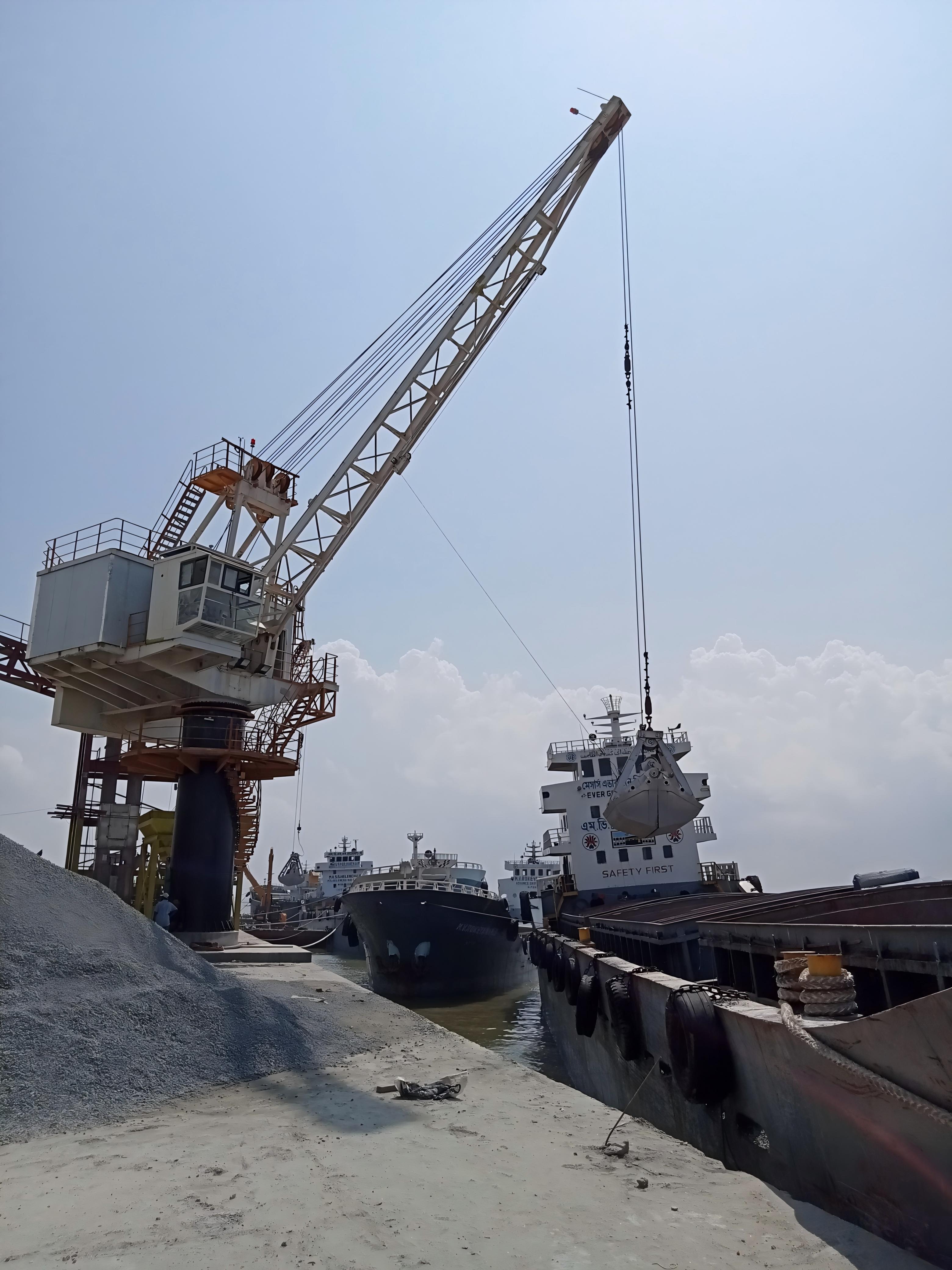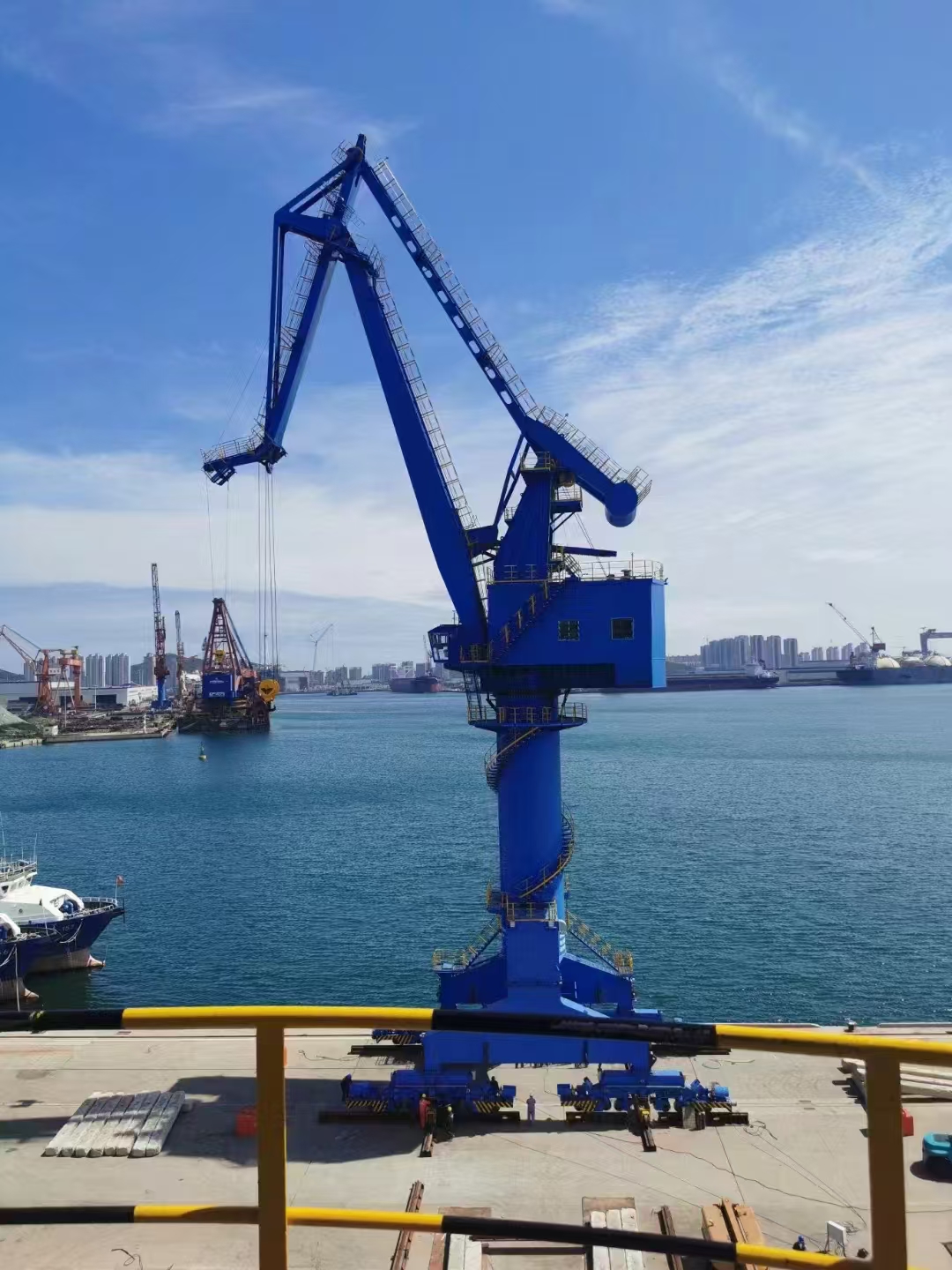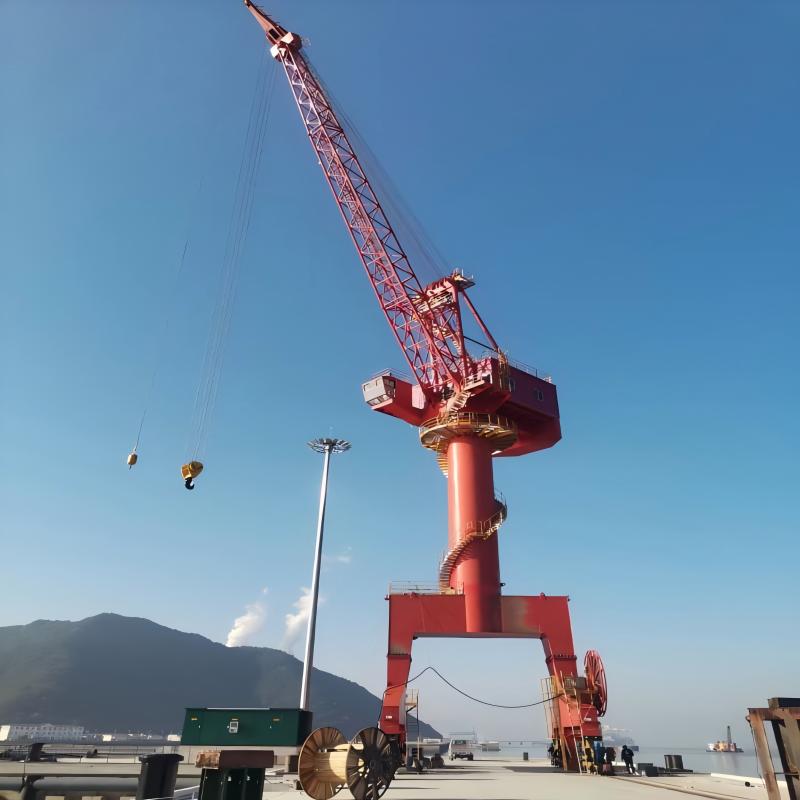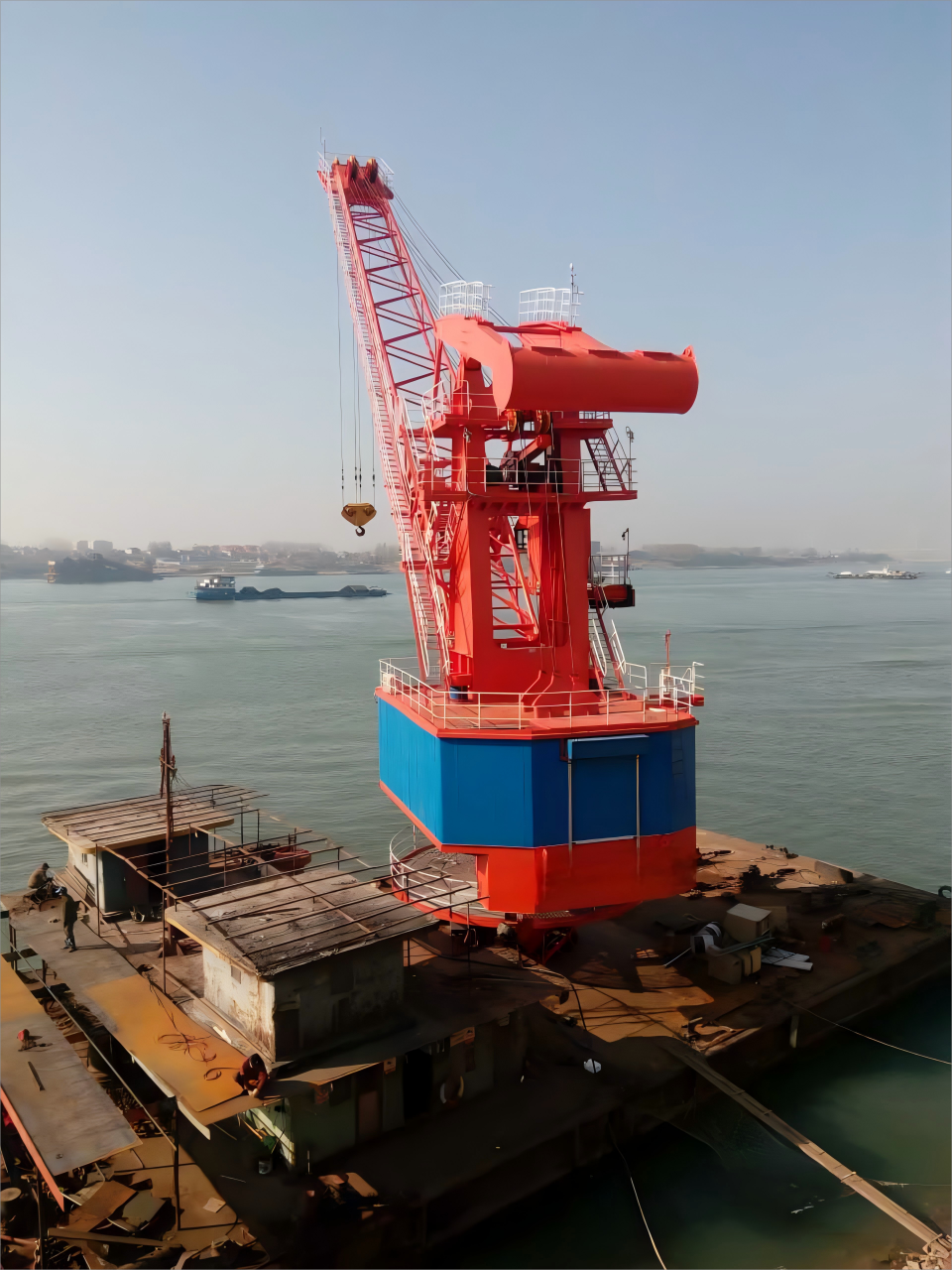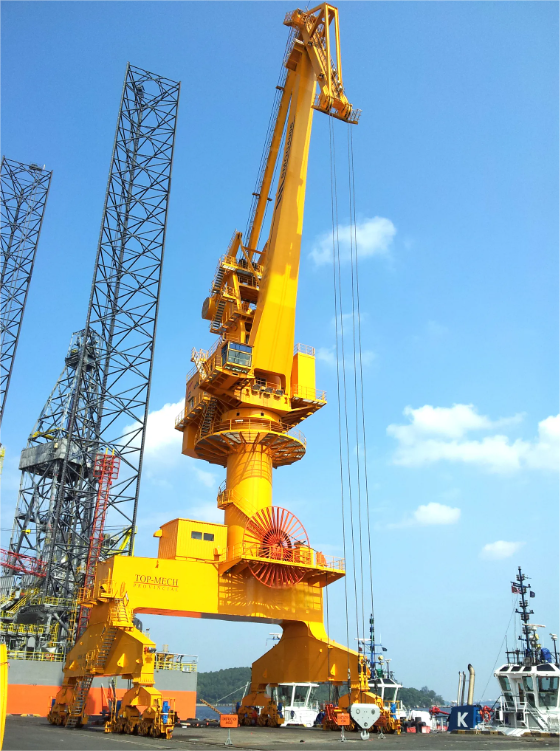Portal slewing crane
Portal Slewing Crane (Rail-Mounted Shipyard Crane) - Special Design by Jinghe Crane
This crane features a 35-ton lifting capacity at a 35-meter radius. The fully electrical and electronic crane can be hydraulically operated.
Portal Slewing Cranes are state-of-the-art, economical cranes running on rails that can be easily integrated into terminal infrastructure. Their strengths include:
1. Use on special-purpose quays for demanding, continuous-duty bulk handling.
2. Use on quays equipped with rails for loading onto trains, trucks, and conveyor belts.
Portal Slewing Crane Structure
Includes the boom system, herringbone frame, rotating platform, driver's cab, gantry, etc.
Includes the lifting mechanism, luffing mechanism, rotating mechanism, and running mechanism.
The crane is generally powered by an electric winding drum or trench sliding wire and is directly driven by electricity. Only when the power supply cannot be provided is the use of composite drive devices (such as steam power generation or diesel power generation) considered. The electrical part generally includes wires and cables, central collectors, motors, transformers, resistors, control cabinets, control panels, and lighting.
Includes limit devices, overload limiters, buffers, wind and anti-skid devices, etc. Large gantry cranes with a driver's cab or machine room platform height exceeding 20 meters should consider installing an auxiliary simple elevator.
These four crucial mechanisms work in tandem, allowing the portal slewing crane to perform a range of tasks, including the installation of equipment or hull sections and the efficient loading and unloading of cargo.
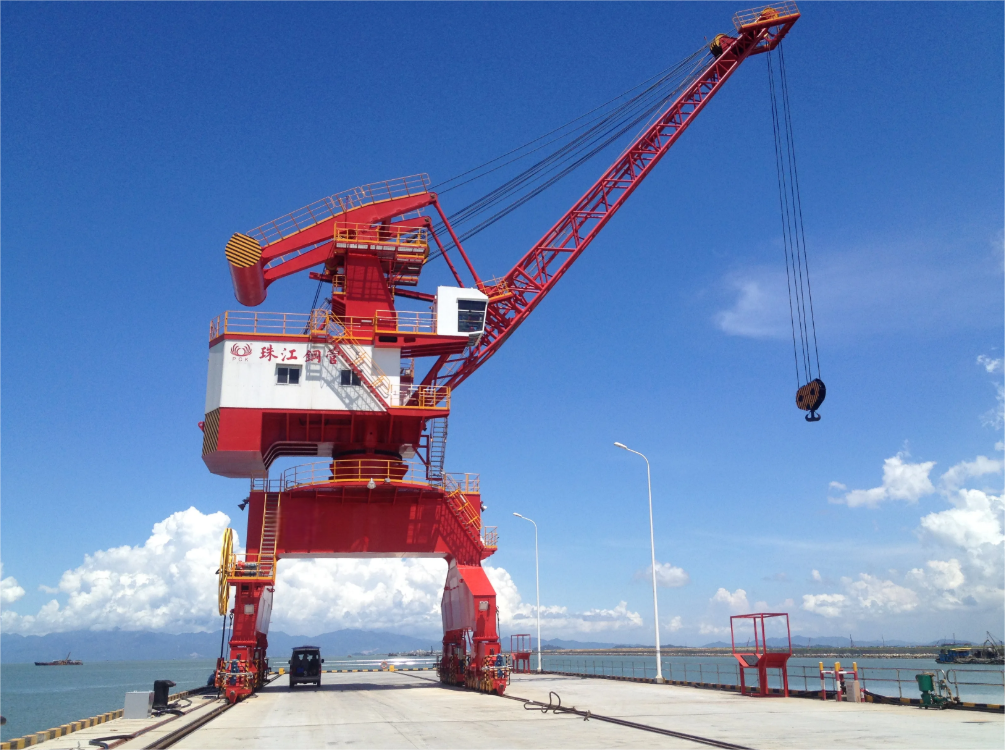
Classification of gantry slewing cranes
Gantry cranes can be divided into the following types based on their structure:
1. Full Gantry Crane: Has a complete gantry structure.
2. Semi-Gantry Crane: Does not have a complete gantry; its two running tracks are not on the same horizontal plane (one is laid on the ground, the other on a warehouse or trestle).
1. Four-Link Combination Boom Gantry Crane: Offers greater clearance height under the boom pipe rack, allowing a lower total crane height for a given lifting height requirement. Structure is more complex and heavier.
2. Single-Boom Gantry Crane: Simpler structure and lighter weight, but requires greater total height for equivalent lifting height. Jinghe Crane primarily sells four-link combination boom cranes.
1. Rail-Type: Simpler structure, lower production cost, more economical price.
2. Tire-Type: More complex structure, higher production cost, more expensive price. Jinghe Crane currently produces only rail-type cranes.
1. Port Gantry Cranes
2. Shipbuilding Gantry Cranes
3. Construction Gantry Cranes
1. General-Purpose Portal Cranes: Used in general cargo docks; equipped with hooks or grabs.
2. Special-Purpose Portal Cranes: Used for specific cargo types (e.g., coal, grain) at specialized docks. Equipped with hooks/grabs and specific devices like hoppers, belt conveyors, etc.
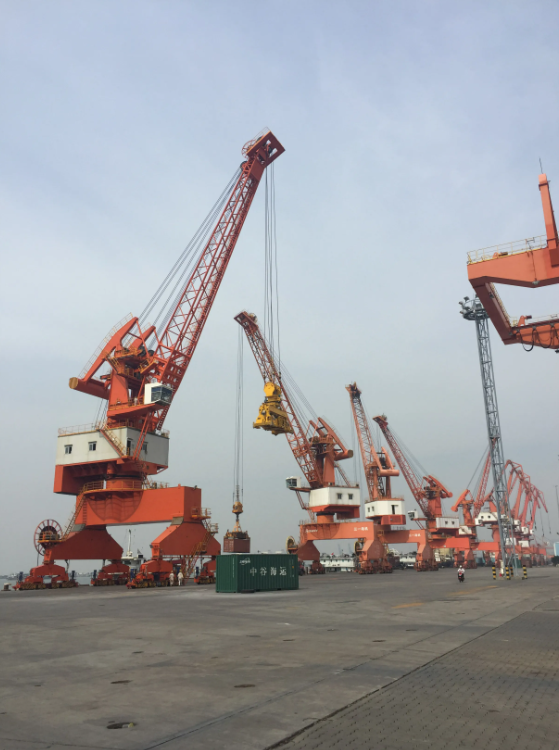
Features
Precise cargo positioning due to minimal swing length.
Capability for horizontal cargo transfer.
High productivity when handling bulk cargoes, containers, and metal scrap.
